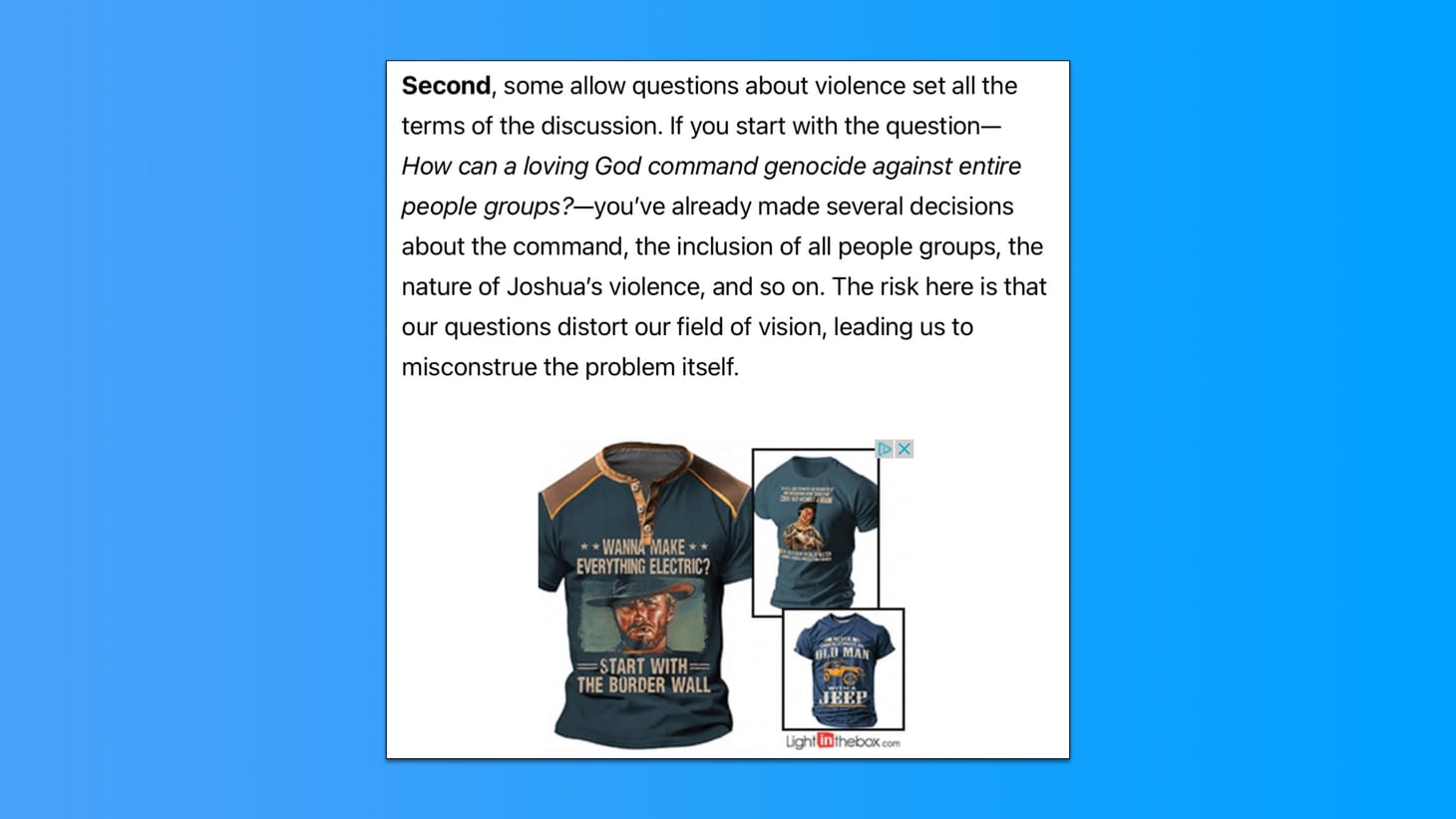Borderline Savings Time
The shifts in some of the most prominent Christian cultures in the U.S. have been disturbing.

A friend recently introduced me to the Orthodoxy and Heterodoxy podcast, wherein Fr. Andrew Stephen Damick explains the Orthodox Christian faith. One thing I took away from it, and really appreciated, is the exploration of the Orthodox view of competing brands of Christianity. Fr. Andrew describes other sects as "incomplete." Having come from a Protestant background, the characterization struck me as both charitable and accurate. There isn't any attempt to denigrate other forms of Christian faith, but merely to point out that perhaps there is more out there to discover.
I try to remember the words of Fr. Andrew, as I read the writings of Christians from other backgrounds. For instance, I frequently check out the Patheos site, which has a mix of Christian thinkers from different denominations, as well as writings from those of other religious traditions. The articles are helpfully broken up, with categories like, "Progressive Christian," "General Christian" or "Hindu." With these granular distinctions, you really know where the views are coming from!
What I've noticed recently is that I see ads that are targeted towards the demographic of the reader expected to be reading that particular viewpoint. It has been revelatory. One particular ad stood out to me when I was on an evangelical Christian blog post. The ad featured a t-shirt that read, "Wanna Make Everything Electric? Start With The Border Wall." I kind of did a double take when I saw that. I knew that some Christians were particularly vociferous in their opposition to illegal immigration and their support for a wall to stem the tide. When I saw that t-shirt, though, it struck me as especially callous. A flippant joke about electrocuting human beings like insects caught in a bug zapper is a seriously bad look.
Jack Jenkins writes for Religion News Service about a Catholic charity, that helps migrants, receiving harassment from far-right sources.
For Pajanor, whose group operates homeless shelters and 14 food pantries in the city, the recent avalanche of hate followed a visit by James O’Keefe, a far-right provocateur who was recently forced out of Project Veritas, the activist organization he founded, following complaints regarding his treatment of staff. O’Keefe appeared earlier this month with a film crew outside a hotel that was being used by Catholic Charities San Diego to house migrants who had been processed by CBP.
In videos posted to social media, O’Keefe and his team can be seen questioning security guards outside the hotel. O’Keefe even posed as an exterminator to try to gain entry. On multiple occasions, O’Keefe suggests migrants in the hotel came into the country illegally and speculates, without offering evidence, that some were being trafficked.
This kind of targeted abuse is a terrible phenomenon that was mostly ushered in by our former president and current Bible salesman, Donald J. Trump. As the article points out, the Catholic charity was serving legal immigrants who had been processed. They weren't even the Gonzaga basketball team. The tragic irony is that I saw the same ad hawking those crass t-shirts on the sidebar when reading the article about the harassment of the Catholic charity workers.
As many well known voices have pointed out, the Christian supporters of the former president have not, as supporters originally predicted, molded him in the image of Christ. Rather, he has molded them in the image of himself. Russell Moore points this out in his Christianity Today column.
“If The Simpsons were written today and wished to make fun of evangelical Christians,” he writes, “would the caricature be someone inordinately devoted to his family, to prayer, to churchgoing, to kindness to his neighbors, to the awkward purity of his speech? Or would Ned Flanders be a screaming partisan, a violent insurrectionist, a woman-ogling misogynist, or an abusive pervert?”
I follow the logic Dr. Moore is using and fully believe an evangelical caricature like Ned Flanders would look entirely different than they did 30 years ago. The worst realization is that, as Moore depicts, they would be quite the villain.



